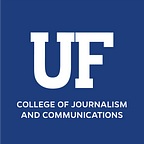Purpose, Vision, Values and Authenticity: Key Ingredients for Success
Katie Coldwell, director of communications at Southwest Airlines, will be speaking at the 7th National Summit on Strategic Communications on April 26–27, 2016. This interview was conducted by Chloe Westrich, a Ph.D. student at the University of Florida College of Journalism and Communications which is a supporting partner for the Strategic Summit.
University of Florida: Many companies today struggle to build a corporate culture that is consistent and contributes to brand building. Your session at the Summit will focus on how Southwest Airlines has developed a strong corporate culture and leveraged its employees to build its reputation. Can you provide attendees with a preview of what you will discuss?
Katie Coldwell: During my session, I’ll focus on Southwest’s history and how our early days helped form our current corporate culture. We’ll spend time talking about why purpose, vision, and values are so important for a company and why they all have to be authentic. Then, we’ll talk about how you can truly turn employees into your company’s best brand ambassadors, and how you can evolve a corporate vision when you know that you’ve achieved something and you’re ready to seek out something bigger.
UF: How does Southwest Airlines stay on top in the airline industry, when everyone has their own opinions and expectations for airlines?
KC: Southwest’s views on the industry come from having a very humble approach to what we do, and never resting on our laurels or thinking that we’ve arrived. If you get to a place where you think you’ve got it all figured out, then your competition will surpass you.
As an example, we’ve evolved our purpose, values and vision over time. When Southwest first started flying in 1971, our vision was to make flying affordable enough that anyone could fly. Less than 15% of the American public had ever been on a plane when Southwest first took to the skies. Flying was expensive and was reserved for the elite. Airfares dropped when Southwest entered a market, making it more affordable for people to fly, and driving an increase in travel. Today, more than 85% of American’s have flown; a realization of Southwest’s initial vison to democratize the skies.
Once we achieved this mission, it would have been easy to step back and say, “Okay, we’ve done it, we’re done.” But we didn’t. We kept aspiring for something greater. Our vision that we rolled out in the summer of 2013 is to become the world’s most loved, most flown, and most profitable airline. That’s a bold plan, but that’s what makes it exciting!
UF: Southwest Airlines has been complimented for its successful crisis communication responses. What is your best advice for crisis situations and how has your team been able to handle situations like these so effectively?
KC: My key piece of advice for crisis communication is preparedness as the first step. We have an incredible team here that tries to contemplate all sorts of different issues by building contingency plans, considering what could happen and what our responses would be. Timeliness is second. As events are unfolding, you want to join the conversation early on. In the initial stages, we want to acknowledge the fact that we’re aware that something has taken place and are working to gather as much information as possible. Finally, be adaptable. As new information becomes available, consider how it impacts the situation.
UF: What has been the most challenging or rewarding part about being in communications at Southwest Airlines?
KC: The most rewarding part of communicating for Southwest Airlines is that we have a product and a brand that I absolutely love. We have 50,000 employees who really are the heroes of our company. It’s such a joy for me to be able to focus time and energy on supporting our employees as they support our customers. I love hearing the stories of what our employees do on an everyday basis.
We have thousands of customers who will write to us about specific employees who went above and beyond to make their day great. We share these stories with our employees every month through a product that we call “LUV Mail.” When a customer writes in, we share their letter with the employee that they wrote about, with the employee’s leader, and with the whole company. It’s a neat way for us to take our role as storytellers and highlight the incredible actions that our people do.
UF: What piece of advice would you give to those wanting to build a strong corporate culture and brand?
KC: You’ve got to be authentic. That’s the key to it all. Building a strong culture and value statement really starts with some soul searching. It’s figuring out why you get up in the morning. What are the unique elements of your work and your company? What is the value you bring to the world? It’s asking these questions to all of your stakeholders, employees, customers, shareholders, and constituents to get that 360-degree view of what your unique skills are as a company. Once you have a good grasp, then identifying corporate mission, purpose, and values becomes the next step. The culture is how those are lived out. It’s two-fold. You’ve got to identify and agree upon the mission, purpose, and values, and then figure out how you bring them to life.
About the Author & Interviewer
Katie Coldwell, Director of Communications at Southwest Airlines
Chloe Westrich, University of Florida College of Journalism and Communications, Master’s Candidate
